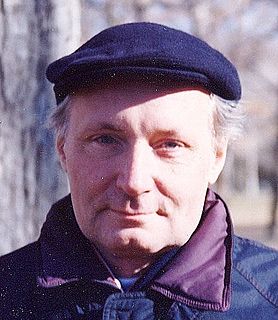A Quote by Oliver D. Crisp
One of the things we in the Reformed tradition are very good at is writing doctrinal theology!
Related Quotes
You see, my Lord Archbishop, what is "dubious" about my theology is not that it contradicts particular doctrinal teachings, things are much worse or better: what I want, is no more and no less than a fundamental change in the whole way that theology is done today; but I want this out of faith, not out of faithlessness.
I do not believe that God intended the study of theology to be dry and boring. Theology is the study of God and all his works! Theology is meant to be LIVED and PRAYED and SUNG! All of the great doctrinal writings of the Bible (such as Paul's epistle to the Romans) are full of praise to God and personal application to life.
Many Christians in the evangelical tradition use words like "conversion," "regeneration," "justification," "born-again," etc. all as more or less synonyms to mean "becoming a Christian from cold." In the classic Reformed tradition, the word "justification" is much more fine-tuned than that and has to do with a verdict which is pronounced, rather than with something happening to you in terms of actually being born again. So that I'm actually much closer to some classic Reformed writing on this than some people perhaps realize.
The Reformed tradition at the beginning of the twenty-first century is different as a consequence of this - and different in nontrivial ways. Some may scoff at this, saying that such "developments" don't represent Reformed thought. But by what standard? Perhaps by the Westminster Confession. But this is only one Reformed confession, and it was only ever a subordinate standard.
The book [Saving Calvinism] argues in each case that the Reformed tradition is broader and deeper than we might think at first glance - not that there are people on the margins of the tradition saying crazy things we should pay attention to, but rather that there are resources within the "mainstream" so to speak, which give us reason to think that the tradition is nowhere near as doctrinally narrow as the so-called "Five Points of Calvinism" might lead one to believe.
The classic theology of my tradition comes from the French Renaissance. [William] Shakespeare was born in 1564, the year [John] Calvin died, and that theology was very influential in England in his lifetime. I think Shakespeare was attentive to questions raised by it, about human nature, history, reality itself. I find the two literatures to be mutually illuminating.
It is often reported that the Five Points of Calvinism are the conceptual hard-core of Reformed thought. That is very misleading. The Five Points supposedly originate with the Synod of Dort in the early seventeenth century. Yet we find important Reformed leaders who were signatories to that documentation who don't think that limited atonement is the right way to think about the scope of Christ's saving work. How can this be? The answer that recent historical theology has thrown up is that the canons of the Synod don't require adherence to the doctrine of limited atonement.
Protestantism, of course, is much more explicitly divided into different traditions - the Pentecostals, the Anglicans. But there is the main tradition of Protestantism that comes out of the Reformation and that produced people like Kant and Hegel and so on, who are not normally thought of as being people writing in a theological tradition, although Hegel, of course, wrote theology his whole life.
This, then, is the foundation of sanctification in Reformed theology. It is rooted, not in humanity and their achievement of holiness or sanctification, but in what God has done in Christ, and for us in union with him. Rather than view Christians first and foremost in the microcosmic context of their own progress, the Reformed doctrine first of all sets them in the macrocosm of God's activity in redemptive history. It is seeing oneself in this context that enables the individual Christian to grow in true holiness.


























